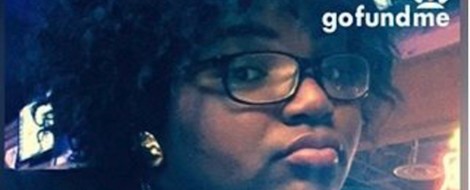Your podcast discovery platform
Curious minds select the most fascinating podcasts from around the world. Discover hand-piqd audio recommendations on your favorite topics.

piqer for: Global finds Technology and society Globalization and politics
Elvia Wilk is a writer and editor living in New York and Berlin, covering art, architecture, urbanism, and technology. She contributes to publications like Frieze, Artforum, e-flux, die Zeit, the Architectural Review, and Metropolis. She's currently a contributing editor at e-flux Journal and Rhizome.
Racial Inequality In Meme Monetization (File Under: Things That Are Not "On Fleek")
If you’ve been wondering when and why you started saying “on fleek”, the answers are summer 2014 and a teenager named Peaches Monroee (AKA Kayla Lewis).
In the kingdom of internetz, Peaches Monroee should definitely be meme queen, but until now she’s gone under-appreciated—and broke. The Black teenager, who you might think would be a superstar, has recently resorted to a GoFundMe campaign to help launch a product line.
As a counter-example: a white Texas mom who made a four-minute viral video of herself wearing a Chewbacca mask in a Kohl’s parking lot in 2016 was rewarded with sponsorships, talk shows, and eventually college scholarships for her entire family.
How did Chewbacca Mom end up with scholarships for her video meme, while Peaches Monroee didn’t see a cent until now for her verbal meme?
The differences between video and language memery may have something to do with it. But the full answer, Emma Grey Ellis argues in this essay, can largely be accounted for by race.
Back to at least 2010 and probably much further, “the meme-to-merch-to-money pipeline has been humming”, writes Ellis. And the way memes become money reflects the methods by which a lot of aspects of culture are turned into capital. That is, through whitewashing.
Lifting catchy elements of Black culture out of context and tossing them into common parlance without attributing the official source has a long history.
Ellis smartly describes other racialized aspects of meme culture. For example, how many memes are funny in the first place precisely because of the double-entendre created through appropriation:
“The reason the ‘cash me outside’ girl is ‘funny’ is because she’s a white female using a voice associated with black culture.”
Ellis points out that this is a golden moment for the law to catch up with the internet. If a meme can be converted into a million in cash, and if memes are being monetized unfairly, intellectual property lawyers might want to pay attention.

Is this really 'racial inequality'? I did not find any concrete info on the gofundme page - she just says that she wants to "start a cosmetic and hair extension line". I would not donate money for such a flimsy project, either. (I have contributed to African-American crowdfunding projects in the past which featured more convincing plans.)